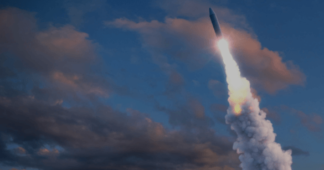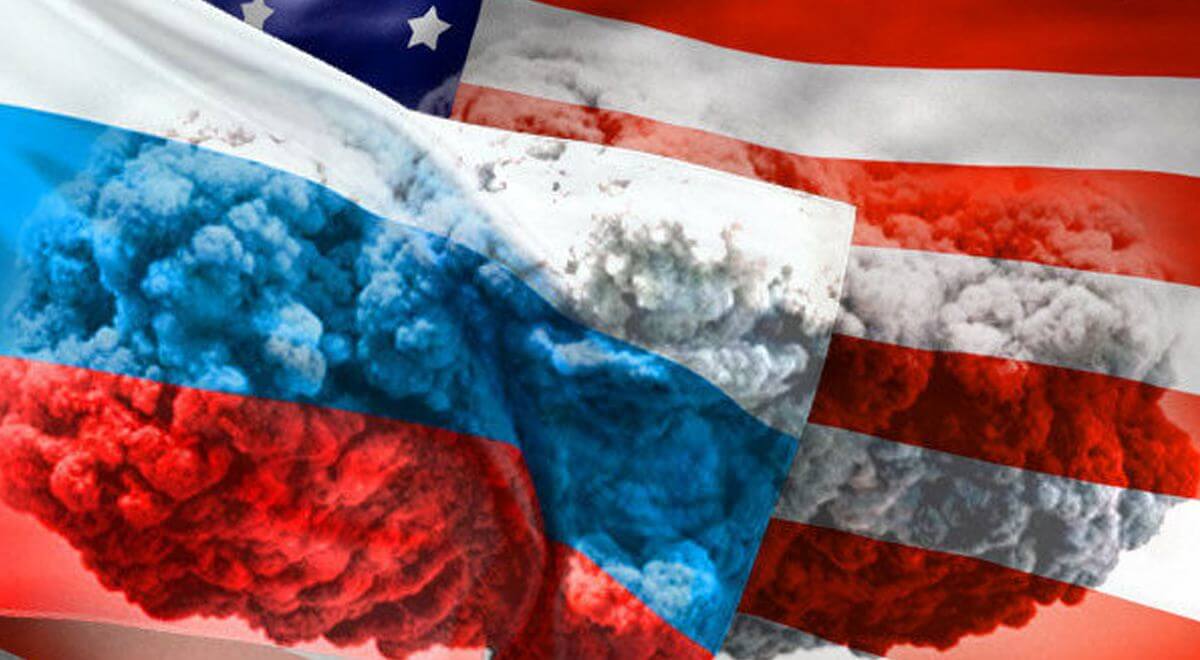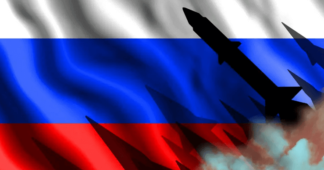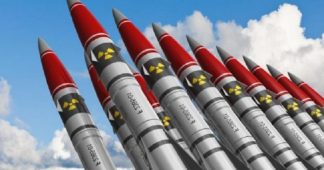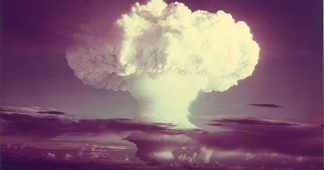Former Russian generals tell Al Jazeera that while the prospect of nuclear war remains slim, the situation could quickly escalate.
Sep 23, 2022
Russia is unlikely to use nuclear weapons in Ukraine unless NATO puts boots on the ground, two retired Russian generals have told Al Jazeera.
“If the collective West attacks Russia with its conventional armed forces, then Russia’s response could very well be nuclear since there is no comparison between the West’s conventional military potential and that of Russia,” said Evgeny Buzhinsky, a retired lieutenant general who served as the Russian military’s top arms control negotiator from 2001 to 2009.
However, Buzhnisky stressed that Russia had little to gain from using nuclear weapons in Ukraine under the present circumstances.
He argued that the Russian military did not need nuclear weapons to achieve its strategic objectives, such as destroying transport infrastructure used to deliver Western arms shipments or damaging the country’s electricity network.
Mutual destruction
At the same time, Buzhinsky warned that initiating a nuclear attack would almost certainly put Moscow and Washington on a dangerous escalating spiral.
“There can be no limited use of nuclear weapons – to think otherwise is an illusion,” he said.
“Any nuclear conflict between Russia and the United States will lead to complete mutual destruction.”
A similar assessment was given by Leonid Reshetnikov, a retired lieutenant general who spent more than 40 years working in the Soviet and Russian foreign intelligence services.
Reshetnikov told Al Jazeera that the prospect of Russia using tactical nuclear weapons in Ukraine was “impossible and would make little military sense” right now.
He argued that such a move would be a sharp deviation from the risk-averse strategy that Russia has pursued in Ukraine so far, noting that the Kremlin waited nearly seven months before declaring a partial mobilisation.
NATO troops becoming directly involved in the conflict could change Moscow’s calculus, however.
“The United States and practically all of Europe are already participating in this conflict by providing Ukraine with weapons, intelligence, instructors, and volunteers,” Reshetnikov said.
“If this continues to further escalate, then that creates the risk of a global war in which nuclear weapons could be used.”
For some, the current showdown brings back memories of the Cold War, a time of incredibly high global tensions as the Soviet Union and Washington competed in an arms race for nuclear supremacy.
According to Reshetnikov, “the Cold War was nonsense compared with the situation today”.
“What we are seeing now is both sides trying to exert pressure on each other, gradually inching towards the possibility of a direct confrontation. I don’t think we will see nuclear war today or tomorrow, but it’s difficult to say how the ongoing escalation will develop a year from now.”
Nuclear capabilities
Russia is believed to have the world’s largest nuclear arsenal, with nearly 6,000 warheads, according to estimates from the Federation of American Scientists.
Along with China, Russia is also one of the leaders in developing hypersonic missiles, which are capable of travelling five times the speed of sound and changing trajectory mid-flight.
Under the nuclear doctrine adopted in 2020, Russia stated that it was prepared to use nuclear weapons if it received information about an incoming ballistic missile hit, was subject to an attack involving nuclear weapons or other weapons of mass destruction, had adversary damage critical infrastructure that controlled its nuclear arsenal, or if it was faced with a conventional military threat that put the “very existence of the [Russian] state itself” in jeopardy.
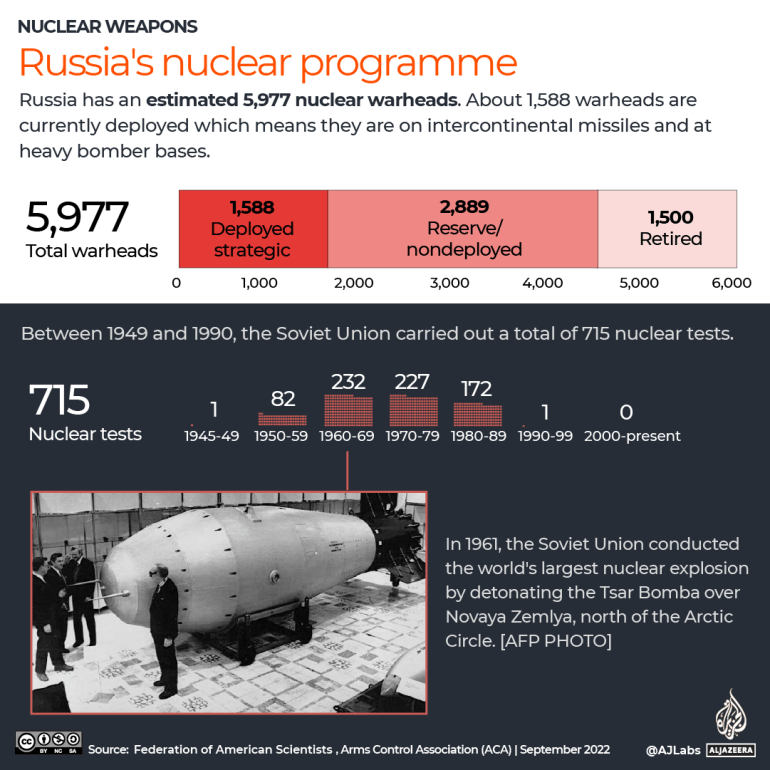
Concerns about the potential of nuclear escalation have risen since the start of the war in Ukraine.
Days after sending troops into his neighbouring country, Russian President Vladimir Putin ordered the military to put Russia’s nuclear forces on high alert in response to what he called “aggressive statements” from NATO powers.
During a nationally televised address on Wednesday, Putin accused Western governments of “nuclear blackmail” and seeking to “weaken, divide, and destroy” Russia through their military support to Ukraine.
“If the territorial integrity of our country comes under threat, we will certainly make use of all the means at our disposal to protect Russia and its people,” he said, a comment widely interpreted as a thinly veiled nuclear threat.
“This is not a bluff,” Putin continued. “Those who are trying to blackmail us with nuclear weapons should know that the wind can also turn in their direction.”
Former Russian President Dmitry Medvedev appeared to further up the ante on Thursday when he declared that the Kremlin could use nuclear weapons to defend territories that are incorporated into Russia from Ukraine.
The rhetoric from Moscow has sparked condemnation from the West.
US President Joe Biden accused Putin of making “overt nuclear threats” against Europe and showing a “reckless disregard for the responsibilities of the non-proliferation regime.”
Biden has previously threatened Russia with a “consequential” response if Moscow were to use chemical or tactical nuclear weapons in Ukraine.
Meanwhile, NATO Secretary-General Jens Stoltenberg told the Reuters news agency that the security bloc would “make sure that there is no misunderstanding in Moscow about the seriousness of using nuclear weapons,” while adding that it had not observed any changes in Russia’s nuclear posture.
In an interview with Britain’s Guardian newspaper, Mykhailo Podolyak, a senior aide to Ukrainian President Volodymyr Zelenskyy, urged other nuclear powers to commit to “swift retaliatory nuclear strikes” against Russia if Moscow attempted to use its weapons in Ukraine.
We remind our readers that publication of articles on our site does not mean that we agree with what is written. Our policy is to publish anything which we consider of interest, so as to assist our readers in forming their opinions. Sometimes we even publish articles with which we totally disagree, since we believe it is important for our readers to be informed on as wide a spectrum of views as possible.
